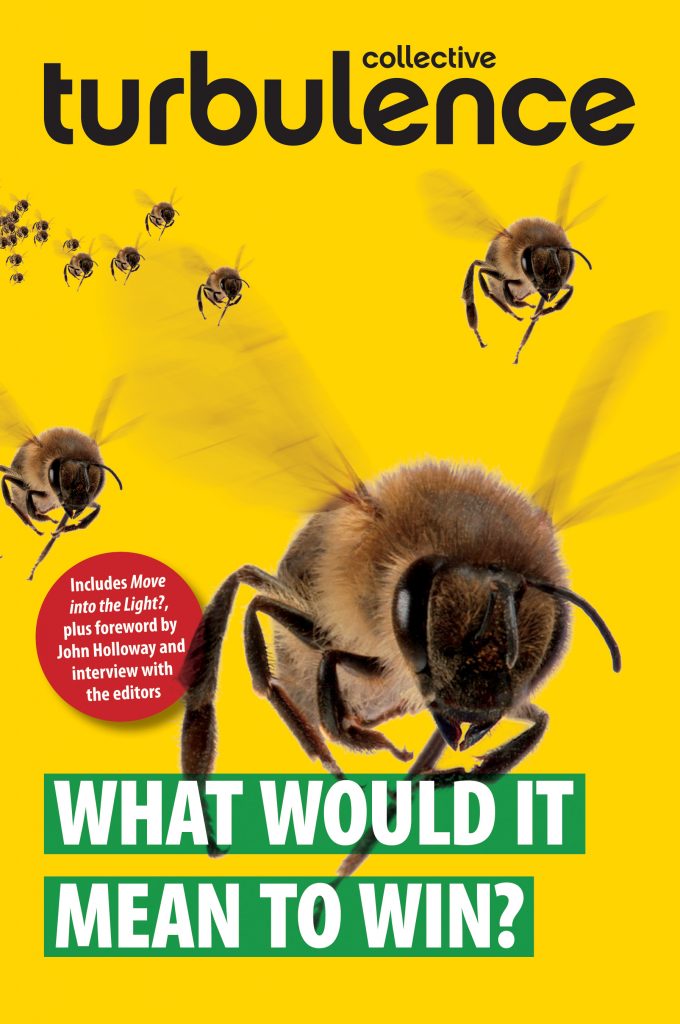By Bertie Russell
School of Geography, University of Leeds
Social Movement Studies Journal
April 2011
Published by PM Press in the latter half of 2010, What Would It Mean To Win? contains a provocative set of texts that compel us to ask questions of ourselves and of the movement which we are endlessly producing. The Turbulence Collective have previously produced four publications timed for distribution at moments of “movement visibility,” such as the August 2008 UK Camp for Climate Action at Kingsnorth power station and the December 2009 COP15 protests in Denmark.
The stated aim of these publications is to provide a space “in which to think through, debate and articulate the political, social, economic and cultural theories of our movements, as well as the networks of diverse practices and alternatives that surround them” (see http://turbulence.org.uk/). Along with an unpublished interview with two members of the collective and a foreword by John Holloway, Turbulence’s most recent offering brings together two previous publications—What would it mean to win? and Move into the light?—originally published immediately before and after the 2007 anti-G8 protests in Heiligendamm. As such, What Would It Mean To Win? contains contributions from a wide range of participants from social movements in Europe, Latin America, and North America.
To ask why these texts have been republished three years later is to ask what has remained the same (and what is profoundly different) about the movements being critically explored. Far from an attempt to immortalize the texts, or to capture movement knowledge(s) within some abstract yet destructive academic assessment framework, the republication of these texts serves a reminder that we must constantly keep reassessing the efficacy of our politics. Rather than taking refuge in refrains—inhabiting a world of recognition—we must constantly look for those excesses that move us beyond the present. Indeed, it is precisely this ‘moving beyond the present’ that is constitutive of movement.
To read more, please check out Social Movement Studies Journal website or visit your local library.







